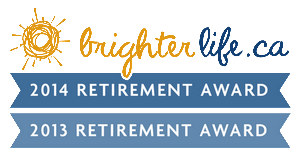I find it interesting because there are many sources of information for us on how to stay healthy when we age. For more on this story visit Smart Money. The story was published on July 20,
For boomers and seniors worried about staying sharp, retirement communities and companies are pushing fitness for the mind -- exercises, games and classes that promise to stave off memory loss, improve your attention span and help you become more productive.
They're finding a receptive audience. The so-called brain fitness market -- which includes everything from handheld games and tests to group classes that are designed to keep seniors mentally sharp -- tripled from 2005 to 2009 to $295 million, according to the most recent data available from market research firm SharpBrains, which tracks brain fitness trends and technology. Retirement communities have also jumped on the bandwagon, with 60% offering some kind of mental acuity classes or programs nearly triple the percentage that did three years ago, says Colin Milner, president of the International Council on Active Aging. And a slew of software developers have entered the market with games, personalized "training programs," and other programs that promise to keep users on point -- at prices that range from a few dollars to several hundred of dollars.
The problem, experts say, is that all these exercises may not be worth the extra cash. "There's not strong evidence that tailor-made brain games are any better than just, say, reading or doing a crossword puzzle or doing something else to stimulate the brain," says Marc Agronin, director of mental health and clinical research at the Miami Jewish Health System and author of "How We Age."
Still, there's a good reason these products have found a niche. According to a 2010 survey by AARP, baby boomers are more concerned about "staying mentally sharp" than running out of money. A separate 2011 poll by the Associated Press finds boomers are significantly more afraid of a deteriorating mental state than they are of death: While 44% of boomers say that one of their top worries is losing their memory, just 18% say that death is on top of the list. As a result, the market for these kinds of products and services is projected to hit up to $8 billion by 2015, says Alvaro Fernandez, CEO of SharpBrains.
My advice, remember the old motto if it appears to be too good to be true, it probably is not true. Buyer beware.

No comments:
Post a Comment